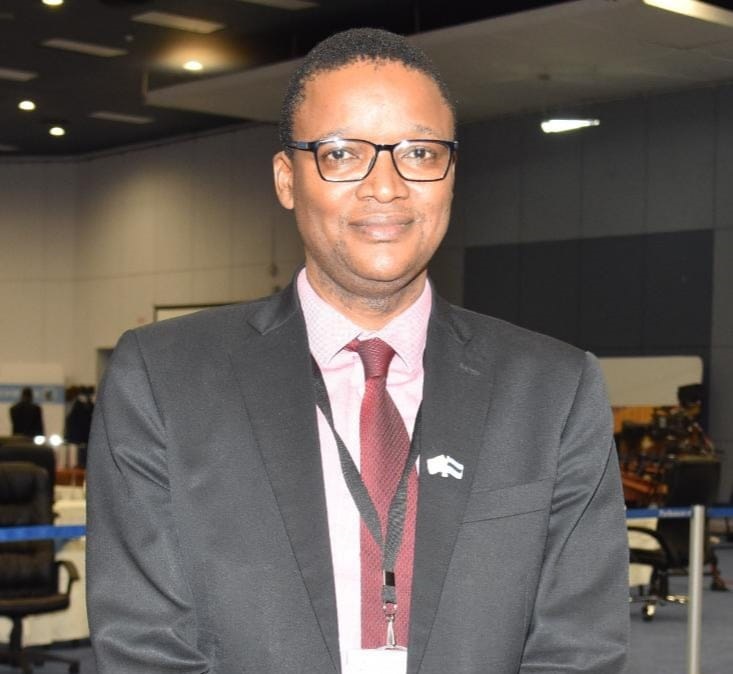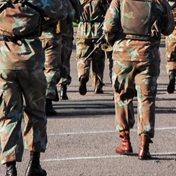
Three Botswana members of Parliament (MPs), who were expected to be in self-isolation at home, were forced into state quarantine after they were caught shopping and interacting with the public at a local supermarket in the capital city Gaborone.
The legislators were exposed in social media posts that went viral and their behaviour was met with wide public criticism.
They were seen at the supermarket, still dressed in the same suits they wore at a session in Parliament, which suggested they could have gone from there straight to the shopping mall.
In a video clip one of them, whose name is known by City Press, was confronted by other customers demanding to know why he was not in self-quarantine, while the other stood by the cashier in the supermarket.
He responded before walking away: “That is where we are headed [after this], we are going there [to self-isolation].”
The social media posts triggered immediate action from the country’s public health director, Dr Malaki Tshipayagae.
“It has since come to my attention that some MPs have breached their quarantine rules by going to supermarkets thus spreading the risk. This is regrettable and the public is informed that the MPs have been removed from home quarantine and will be quarantined under government supervision,” Tshipayagae said in a statement last night.
The country’s health department decided to place the MPs under self-quarantine after they had been in the same room with a nurse who later tested positive for Covid-19. The nurse, who was working in Parliament on Wednesday, had also screened some of them.
How MPs got exposed to Covid-19
The MPs appeared to have been too anxious to find out how they were exposed to the virus.
Health Minister Lemogang Kwape told Parliament that the nurse worked at a local clinic in Gaborone, one of the clinics dedicated to handling suspected and confirmed Covid-19 cases.
Kwape said it was decided to test everyone at the clinic, irrespective of whether they were showing any symptoms of the virus or not.
In response to why the nurse was allowed to work at Parliament before she got her test results, Kwape said: “A decision was taken to test everybody and as such she was not forced to be in quarantine.”
He said they only found out when the results came hours after the Parliament session on Wednesday night that the MPs had been exposed to the virus.
“We became aware of this nurse’s results at 11pm and rushed to find her and those living with her. We acted quickly before the virus was spread, so that it could be contained,” he said.
READ: Botswana places all MPs under quarantine after exposure to an infected nurse
However, it was too late for about 100 or more people – including President Mokgweetsi Masisi, his deputy, Slumber Tsogwane as well as his Cabinet and all the MPs, government officials and the media who all attended the Parliament session – from exposure to the virus.
Some MPs did, however, point a finger at those in charge for the oversight.
“We find ourselves here today because of a mistake where a person who was tested for the virus was deployed here. It was not her own accord but somehow a mistake committed,” said United Democratic Front MP, Aubrey Lesase.
One step back for Botswana
Just how a costly that mistake could be for Masisi’s “prevention is better than cure” approach remains to be seen.
It happened when the country was taking no chances with the virus, having already forced more than 2 000 people arriving in Botswana into quarantine.
Masisi was also asking Parliament to rubber stamp his declaration of a six-month state of emergency. The president and other MPs from his party were hard at work trying to convince the opposition benches that the state of emergency was in the country’s best interests.
The opposition thought the 28-day “extreme lockdown” currently in force was enough and that the Public Health Act could be used to curb the spread of the virus. They stopped short of saying that the state of emergency gave Masisi too much power that could lead to abuse of power and resources such as tender irregularities.
“Our best defence will always be our capacity to prevent, that is just a fact,” he said.
“If you think of beds that might be needed, we have a maximum of about 150 intensive care unit beds. When we are really hit we would need up to 50 000 beds and about 2 000 ICU beds,” the president said.
He said one “highly trained nurse” would be needed for two ICU beds and a doctor for four ICU beds.
“We would quickly realise that we don’t have the personnel to do that,” Masisi said. “This disease spreads faster than wildfire and that is why we say prevention will always be our primary strategy.”
Meanwhile, some MPs had earlier questioned why the health department had changed from quarantining them in a state-funded facility to self-quarantine. Others asked why they were being treated differently from the public when a 14-day quarantine had been mandatory. Many people had been forced into state-quarantine on arrival in the country.
It was explained to the MPs that they would still be closely monitored while in self-isolation and would be tested for the virus on the 10th day.
The self-quarantine was the second for Masisi in as many weeks after he was cleared of the virus on April 1. This was after he had spent 10 days in self-quarantine on his return from Namibia which had at the time recorded three Covid-19 cases.
Botswana has 13 positive cases of Covid-19, including the nurse who worked in Parliament, and one death linked to the virus. A 79-year-old woman died in hospital 11 days after returning from South Africa where she had attended a funeral in Motswedi near Zeerust.




 Publications
Publications
 Partners
Partners








